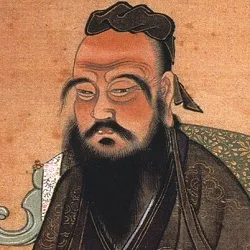- RESEARCHDistance Learning at AIU is enhanced by vast academic resources and innovative technologies build into the Virtual Campus: Hundreds of self-paced courses with video lectures and step by step lessons, thousands of optional assignments, 140,000 e-books, the Social Media & Networking platform allowing collaboration/chat/communications between students, and MYAIU develop students holistically in 11 areas beyond just academics.
- PROGRAMS OFFERED
- Areas of Study
- Courses and Curriculum
- Open Courses
- Register for a Program
- Associate Program
- Associate in Addiction Counseling
- Associate in Agriculture Food And Resources
- Associate in Anti Terrorism Security
- Associate in Behavior Analysis In Special Education
- Associate in Bioethics
- Associate in Climatology
- Associate in Cultural Theological Communication
- Associate in Culinary Arts
- Associate in Ecotechnology
- View all Associates Programs
- Bachelor Program
- Bachelors in Community Development
- Bachelors in Environmental Science
- Bachelor in Education (B.Ed, BS)
- Bachelors in Economics
- Bachelors in Entrepreneurship
- Bachelors in Financial Administration
- Bachelors in Human Resource Management
- Bachelors in Linguistics
- Bachelors in Nutritional Science
- Bachelors in Occupational Health and Safety
- Bachelors in Psychology
- View all Bachelor Programs
- Doctorate Program
- Doctor | of Biology (PhD)
- Doctorate in Business Administration (DBA, PhD)
- Doctor of Economics (PhD)
- Doctor of Electrical Engineering (D.Sc, PhD)
- Doctor of Finance (PhD)
- Doctorate in International Relations
- Doctorate in Information Technology (D.Sc)
- Doctor of Legal Studies (PhD)
- Doctor of Project Management (PhD)
- Doctor of Sociology (PhD, D.Sc)
- Doctorate in Sustainable Natural Resources Management
- View all Doctorate Programs
- Master Program
- Postdoctoral Program
- Postdoctoral in Animal Science
- Postdoctoral in Anti Terrorism Security
- Postdoctoral in Behavior Analysis In Special Education
- Postdoctoral in Bioethics
- Postdoctoral in Blockchain Technology and Digital Currency
- Postdoctoral in Business Management
- Postdoctoral in Cloud Computing
- Postdoctoral in Computer Engineering
- View all Postdoctoral Programs
AIU offers a wide range of majors in areas including the Arts, Business, Science, Technology, Social, and Human studies. More than 120 degrees and programs are available for adult learners at the associate’s, bachelor’s, master’s, doctoral and postdoctoral level. - VIRTUAL CAMPUS
Distance Learning at AIU is enhanced by vast academic resources and innovative technologies build into the Virtual Campus: Hundreds of self-paced courses with video lectures and step by step lessons, thousands of optional assignments, 140,000 e-books, the Social Media & Networking platform allowing collaboration/chat/communications between students, and MYAIU develop students holistically in 11 areas beyond just academics.
- ALUMNI
The world is YOUR campus!”, that is the message of AIU’s month magazine Campus Mundi. Hear the voices and see the faces that make up AIU. Campus Mundi brings the world of AIU to you every months with inspirational stories, news and achievements by AIU members from around the world (students and staff are located in over 200 countries).
Psychotherapy 1
Assessing the Effectiveness of Psychotherapy: Efficacy, Outcomes, and the Importance of Therapeutic Relationships
The paper discusses the effectiveness of psychotherapy, addressing the question of whether it truly works. Initially, Hans Eysenck’s 1952 conclusions suggested that individuals receiving no therapy fared better than those who did. However, subsequent meta-analyses refuted these claims, demonstrating that psychotherapy is effective in improving mental health. The text differentiates between efficacy studies (controlled conditions) and effectiveness studies (real-world applications), highlighting the importance of the therapeutic relationship as a common factor across different approaches. It also emphasizes the positive outcomes reported by clients in large-scale effectiveness studies, such as those conducted by Consumer Reports, confirming that psychotherapy significantly benefits many individuals with mental health issues. Overall, the paper advocates for prioritizing the therapeutic alliance in training programs for future psychotherapists.

The document explores the effectiveness of psychotherapy, addressing key questions about its efficacy and outcomes. It begins by referencing Hans Eysenck’s controversial assertion in 1952, which claimed that individuals who did not receive therapy were better off than those who did. This notion was later challenged by several meta-analyses that provided substantial evidence indicating that psychotherapy is indeed beneficial for mental health improvement.
The text differentiates between two types of studies: efficacy studies, which assess psychotherapy outcomes under controlled conditions, and effectiveness studies, which evaluate the therapy’s performance in real-world settings. Efficacy studies typically involve patients with well-defined psychological disorders and use standardized therapeutic approaches, while effectiveness studies include a broader range of patients and therapeutic methods, offering higher external validity.
Additionally, the document discusses the neurobiological effects of psychotherapy, illustrating how treatment can lead to observable changes in brain activity and structure, further validating its effectiveness. It cites evidence that patients who undergo therapy often experience reduced hospital stays and lower medical costs compared to those who do not seek treatment.
The paper highlights the importance of the therapeutic relationship or alliance as a critical component influencing therapy outcomes. It refers to the “Dodo Bird verdict,” which suggests that all psychotherapy approaches possess common factors that contribute to their success. The nature of the therapist-client relationship is emphasized as a primary predictor of therapeutic success.
The document also reviews large-scale effectiveness studies, such as the 1995 Consumer Reports survey, which demonstrated that a significant majority of respondents reported improvement in their mental health following therapy. This supports the conclusion that psychotherapy works not only in controlled research environments but also in everyday clinical practice.
In training future psychotherapists, the paper advocates for a curriculum that prioritizes the development of strong therapeutic relationships over specific therapeutic techniques. By fostering trust and understanding between the therapist and the client, practitioners can enhance the overall effectiveness of their treatment, leading to better outcomes for individuals seeking help for mental health challenges.
Atlantic International University
Get to know the AIU experience
Contact Us Today!
We understand how busy adults do not have time to go back to school. Now, it’s possible to earn your degree in the comfort of your own home and still have time for yourself and your family. The Admissions office is here to help you, for additional information or to see if you qualify for admissions please contact us. If you are ready to apply please submit your Online Application and paste your resume and any additional comments/questions in the area provided.
Pioneer Plaza
900 Fort Street Mall 905
Honolulu, HI 96813
800-993-0066 (Toll Free in US)
808-924-9567 (Internationally)
808-947-2488 (Fax)
AIU Success Stories







Contact Us Today!
Begin Your Journey!
AIU’s Summer of Innovation and Growth gives you the ability to earn up to $5000 in tuition credit by completing free lessons and courses.
Whether you’re looking to acquire new skills, advance your career, or simply explore new interests, AIU is your gateway to a world of opportunities. With free access to 3400 lessons and hundreds of courses the ability to earn credits and earn certificates there’s no better time to start learning.
Join us today as a Guest Student and take the first step towards a brighter, more empowered future.
Explore. Learn. Achieve.
Degrees


Contact Us
Atlantic International University
900 Fort Street Mall 905 Honolulu, HI 96813 [email protected]
Quick Links
Home | Online Courses | Available Courses | Virtual Campus | Career Center | Available Positions | Ask Career Coach | The Job Interview | Resume Writing | Accreditation | Areas of Study | Bachelor Degree Programs | Masters Degree Programs | Doctoral Degree Programs | Course & Curriculum | Human Rights | Online Library | Representations | Student Publication | Sponsors | General Information | Mission & Vision | School of Business and Economics | School of Science and Engineering | School of Social and Human Studies | Media Center | Admission Requirements | Apply Online | Tuition | Faculty & Staff | Distance Learning Overview | Student Testimonials | AIU Blogs | Register for Program | Privacy Policy | FAQ


















